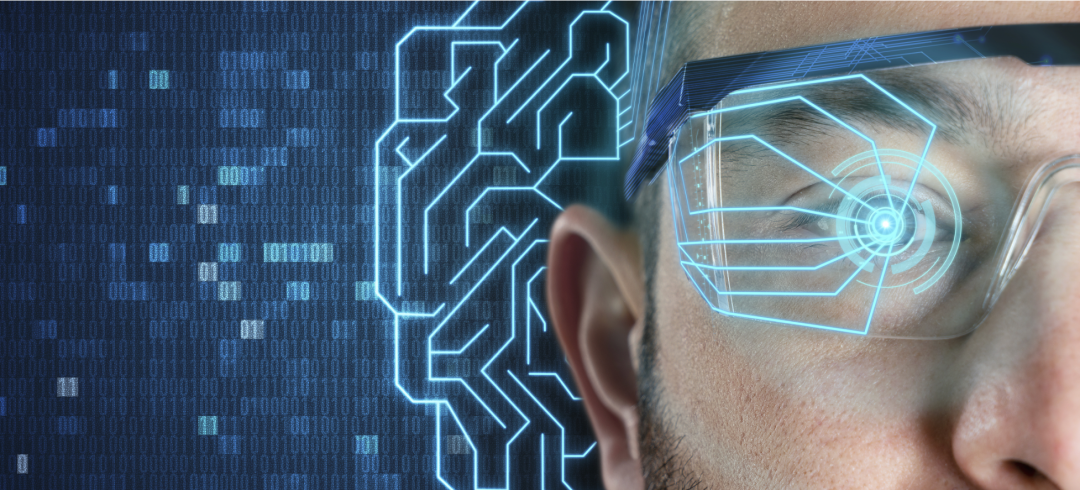"Reasoning-based AI" will complement human intelligence, boost productivity, and enable breakthroughs in tackling complex problems.
Image source:Getty Images/iStockphoto
Anne-Laure Thibaud
PositionVP of Artificial Intelligence at Capgemini
Advances in artificial intelligence are driving the integration of certain elements of human reasoning into AI systems themselves.
This "reasoning-based AI" will complement human intelligence, boost productivity, and enable breakthroughs in tackling complex problems.
As reasoning-based artificial intelligence continues to evolve, policymakers, industry leaders, and technology experts must establish robust governance frameworks to ensure that AI development aligns with human values and societal goals.
While the prospects for "reasoning-based AI" are becoming increasingly common, we may be able to redefine the role of human intelligence to achieve even better outcomes. From the first-generation, rudimentary chatbots to today’s semi-autonomous AI agents, we’ve witnessed systems that combine generative capabilities with action-oriented functions—enabling them to tackle complex tasks more effectively.Despite these advancements, AI agents still face significant limitations, particularly in areas like situational understanding and complex reasoning.This leads to a crucial question: As machines become capable of independent thought and action in the future, what role should human intelligence play?From Imitation to Mastery: The Journey of Reasoning-Based Artificial IntelligenceBefore concluding that our intelligence has created a tool that renders intelligence itself irrelevant, we must first take a step back and ask: How "intelligent" is artificial intelligence? Interestingly, despite their impressive capabilities, today’s AI models still lack the kind of true intelligence we typically associate with human cognition. At the heart of AI systems are statistical and mathematical models, which function by analyzing vast datasets, identifying patterns, and leveraging those patterns to predict, infer, or generate outputs in response to user prompts.This approach has enabled artificial intelligence to achieve remarkable feats, particularly in mimicking human behavior. Whether it’s generating text, recognizing images, or even mastering games at a superhuman level, AI excels at tasks that require creating and interpreting illusions of understanding. Yet, these systems still lack any genuine comprehension of their surroundings or context. For instance, advanced natural language processing systems, despite their impressive complexity, often misinterpret subtle nuances like idioms or sarcasm.This limitation becomes most apparent in scenarios outside the datasets these models were trained on. Without a genuine understanding of the world's subtle nuances—and lacking human-like common sense—AI systems struggle to adapt and reason across all those intricacies, just as humans do. Consequently, they also find it challenging to make reliable decisions when confronted with the unknown.So far, the primary strategy for advancing AI has been to scale up—providing models with ever-larger datasets and increasing their complexity to capture more facets of human behavior. While this approach has led to remarkable progress, it’s also reached its limits. As these systems grow in size, they’re becoming increasingly resource-intensive, vulnerable, and heavily reliant on the quality of their training data. Moreover, the inability to reason or generalize beyond learned patterns remains a fundamental barrier preventing AI systems from truly matching human-level intelligence. Understanding these limitations is the first critical step toward overcoming them—paving the way for AI systems that can reason more effectively and engage with the world in meaningful, purposeful ways.The Future of Reasoning-Based Artificial IntelligenceThe advancement of artificial intelligence is driving the integration of certain elements of human reasoning. This includes causality—enabling AI to make decisions and predictions based on cause-and-effect relationships, rather than mere correlations—as well as contextual awareness, which involves evaluating data within a broader framework to spot subtle nuances like intentions, contradictions, or ambiguities. The goal is to ensure responses are not only more relevant and accurate but also capable of handling complex real-world scenarios—going beyond simple pattern recognition.Nevertheless, we’ve already witnessed remarkable progress in both artificial intelligence and generative AI within this field. Generative AI is continuously advancing to tackle complex logic and decision-making, shifting from simple content creation toward increasingly sophisticated problem-solving. Recent models have introduced enhanced reasoning capabilities, enabling them to now identify causal relationships between symptoms and diseases—going beyond merely matching symptoms with probabilities.The Vision of Artificial General Intelligence: Reality or Hype?General Artificial Intelligence represents humanity's highest aspiration for AI: a system capable of matching or even surpassing human intelligence across diverse domains—without requiring extensive, task-specific training for each area. According to Capgemini Research Institute’s “Frontier Technology Trends” report, 60% of executives and venture capitalists surveyed believe this technology will reach maturity and achieve commercial viability by 2030. Yet, this vision remains largely idealistic, as AI continues to face significant technical and ethical challenges. By that time, even the term "General Artificial Intelligence" itself may evolve, necessitating a redefinition as we continue to advance.Currently, today’s AI systems lack the long-term memory needed for causal reasoning, adaptability, and generalization, as well as safe and reliable behavior—traits that are essential to ensuring they can operate predictably in unpredictable scenarios. Transparency and visibility are also critical in addressing challenges related to trust and accountability. Meanwhile, at a broader societal level, risks such as widespread job displacement, concentration of decision-making power, and deepening social inequalities persist.General-purpose AI remains in the realm of speculation; achieving multi-domain intelligence is still a long way off. We should focus on enhancing collaboration between humans and AI, addressing complex challenges such as ethical safeguards and contextual understanding—while avoiding exaggerated claims.The Evolving Role of Human Intelligence in the Age of Artificial IntelligenceArtificial intelligence is an enhancement, not a replacement. Humans won’t become irrelevant—after all, our intelligence and capabilities are far more complex than machine-based reasoning ever could be. Ultimately, our intellect is rooted in the unique abilities of the human brain, which itself is the product of millions of years of evolution. Moreover, our capacity for human-like reasoning is shaped by a multitude of factors, such as emotions or hormonal influences. Even the learning process in infants remains largely mysterious to us—and impossible to fully replicate yet.Therefore, as our capabilities grow alongside those of machines—and as artificial intelligence becomes increasingly adept at performing tasks independently—the role of humans will also evolve. Reasoning-based AI will complement human intelligence, boosting productivity and enabling breakthroughs in tackling complex problems.Humans are likely to focus more on strategic oversight, ethics, creativity, or interpersonal relationships, leveraging AI to enhance their decision-making capabilities—rather than being replaced by it. While AI will provide valuable insights and analysis, it is humans who will draw on the nuanced intricacies of human action and behavior, contextualizing them to inform both decisions and real-world actions. Ultimately, humans will continue to set goals, craft strategies, and drive innovation—capabilities that go beyond the reach of AI.As reasoning-based artificial intelligence continues to evolve, policymakers, industry leaders, and technology experts must work together to establish a robust governance framework—ensuring that AI development aligns with human values and societal goals. This collaboration is essential for ensuring that the benefits of AI are distributed equitably across society.From February 10 to 11 this year, decision-makers and the entire AI industry ecosystem gathered in Paris for the Paris AI Action Summit. Advocating policies that promote the safe development of artificial intelligence is now more critical than ever. These measures won’t replace human roles—they’ll enhance them, enabling people to focus on what they do best: strategic oversight, ethics, creative problem-solving, and fostering meaningful relationships, among other areas.Ultimately, as humans, our responsibility and duty is to ensure we fully harness the potential of artificial intelligence and all related technological advancements—to build a brighter future for everyone.
The above content solely represents the author's personal views.This article is translated from the World Economic Forum's Agenda blog; the Chinese version is for reference only.Feel free to share this in your WeChat Moments; please leave a comment at the end of the post or on our official account if you’d like to republish.
Editor: Wang Can
The World Economic Forum is an independent and neutral platform dedicated to bringing together diverse perspectives to discuss critical global, regional, and industry-specific issues.
Follow us on Weibo, WeChat Video Channels, Douyin, and Xiaohongshu!
"World Economic Forum"





